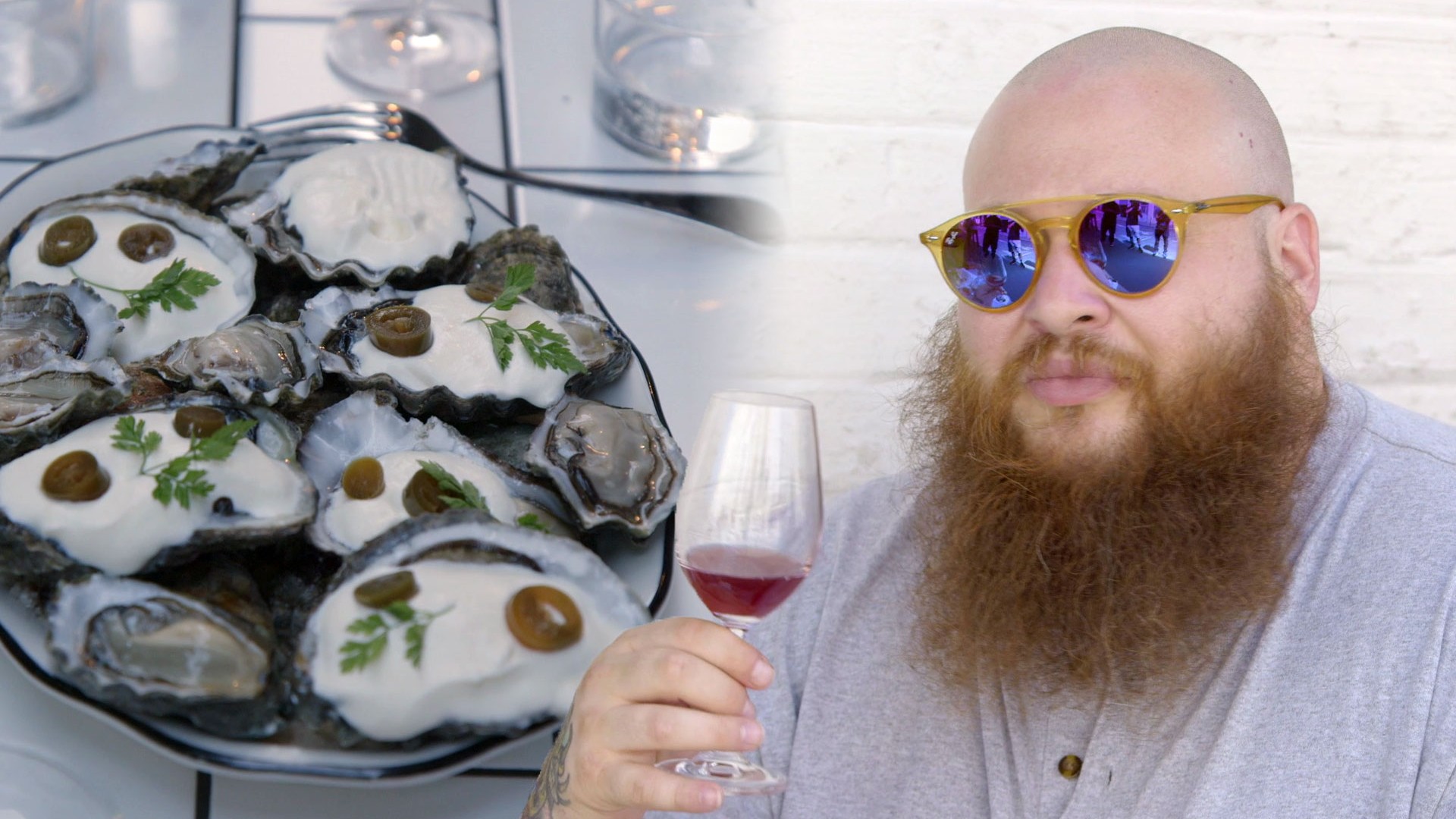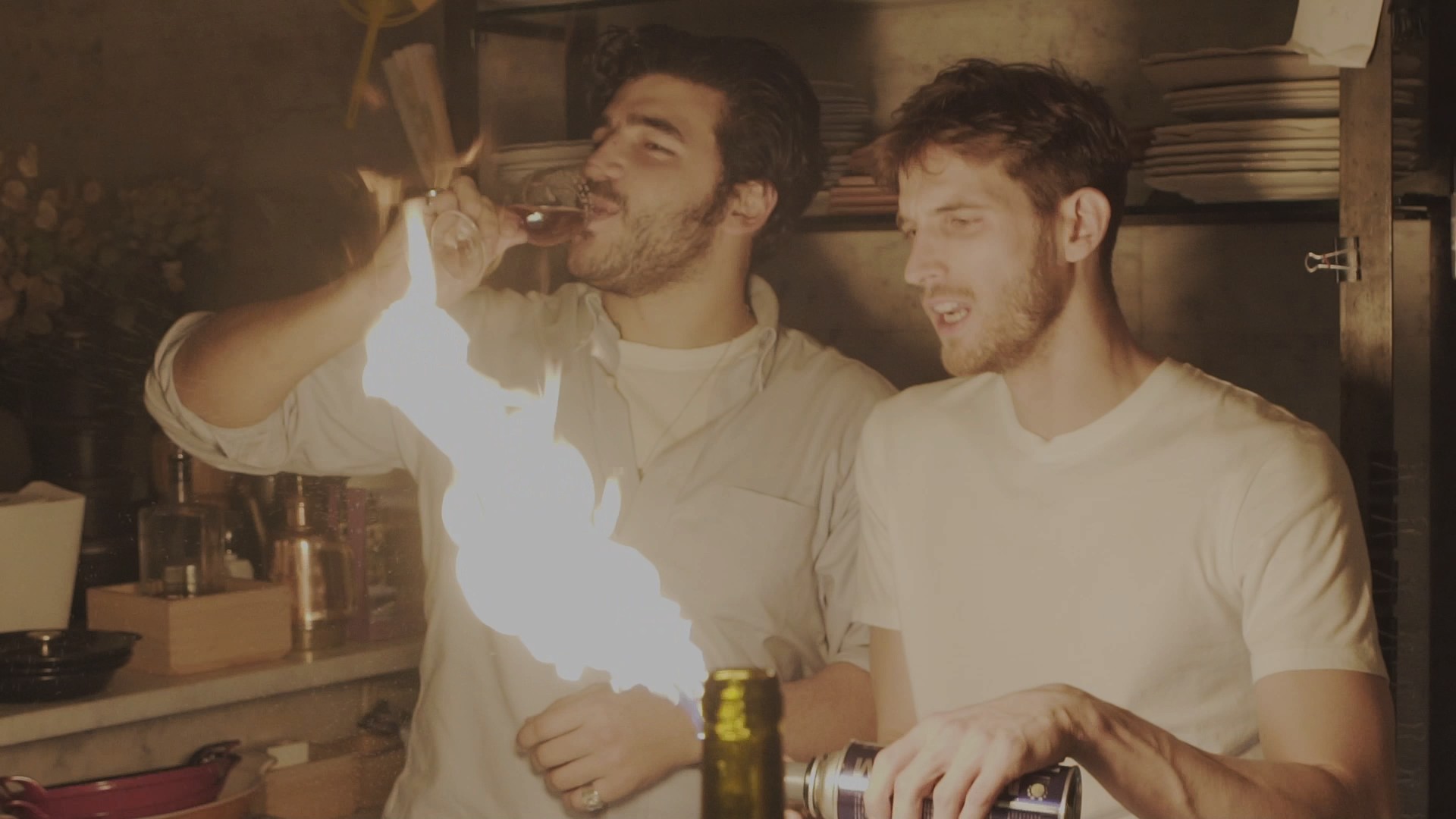Image via Flickr user Vivian Lee
I recently met a man who was privy to the menu that Presidents Donald Trump and Emmanuel Macron shared at the Eiffel Tower last summer. The menu options proposed—after an extensive interview with Trump’s private chef—were sole meunière and well-done filet mignon. I heaved a heavy sigh of relief when I learned Trump had opted for the former; he wouldn’t be the first American I’d met who’d been told that he couldn’t have his steak well-done, at least not in France.As an American, I’ve long been aware of the famed French persnicketiness when it comes to food: I can’t count the number of times I was warned before moving to Paris eleven years ago that I would be categorically refused a Coca-Cola in a restaurant or ketchup for my fries. Neither of these things has yet to transpire (though admittedly, this is in large part because I don’t ask for either one). That said, I have been admonished by servers who tell me that that my wine choice was poorly picked for my meal, that the appetizer I picked was too heavy with regards to the main; in both instances, I was told to change my order. I even know someone who was informed in no uncertain circumstances that the aged Comté he was buying at the cheese shop was too good for fondue; it would be scandalous, the cheesemonger said, to use it for such a purpose, and while he eventually made the sale, it was under duress. Even when I was new to my adopted country, I usually bowed my head and agreed to eat what I was being told to eat: It just seemed easier that way. But not all Americans kowtow so easily. I once witnessed an altercation between a fellow American—a broad-shouldered body builder—and a slight but unyielding French waitress who said that, under no circumstances, would the bavette steak on the menu be served well-done, no sauce, as Monsieur had requested.“It will taste of shoe leather,” she said. She was not trying to convince him, merely telling him why such a thing was impossible.“That’s fine,” he smiled.She frowned; the gentleman had gone off-script. But nonetheless, she disappeared into the kitchen with his order, only to reemerge just as quickly.“The chef insists.”The American insisted right back. He got shoe leather. I’m sorry he didn’t listen.For someone who comes from a country where the customer is always right, being told what you can or cannot purchase or order is a bit tough to swallow—especially when you add the unfortunate American perception of members of the service industry as uninformed college students looking to make some extra money (I know—for three years, I was one of them). The touch of truth behind this stereotype is slowly changing in America, but it has never been the case in France: whereas in the U.S., many people selling food—from waitresses to the person manning the fruit and vegetable section of your local Whole Foods—are far from experts, in France, food industry professionals are just that: professionals. From fishmongers to cheesemongers to servers, those who work in the French food industry have undergone years of training and experience to perform their job: Not so much to sell you what you want to buy, but to counsel you and help you find exactly what you needed—even if you didn’t know what you needed when you came into the store.“I’m having friends over for heavy hors d’oeuvres,” I’ll say. “There are six of us. What would you recommend?”More often than not, the cheesemonger will come up with the majority of the cheeses I eventually serve. While I’m free to say no, to let him know that my friends don’t like blue cheese, for example, or love Comté, the roles here are clear: He is the expert; I am the student.The same is true at the local market: I can’t count the number of times I’ve asked the fishmonger for tuna, only for him to suggest that I opt for cod instead, because it’s fresher. When I go to the apple stand at my local market, the farmer, who grows dozens of varieties, asks me what my tastes are and assembles my kilo accordingly. Shopping for food in France isn’t accomplished via a list, but rather via conversation, and luckily, when my interlocutor realizes how much I, too, love food, it’s often a rather lively discussion.“How are you going to prepare these?” a farmer once asked me as he wrapped up my fresh spring peas.“Sautéed in butter, with a bit of mint pesto,” I said.“Pesto, eh? I’ll have to try that,” he said, passing me the bag and a warning: “Don’t overcook them.”
Even when I was new to my adopted country, I usually bowed my head and agreed to eat what I was being told to eat: It just seemed easier that way. But not all Americans kowtow so easily. I once witnessed an altercation between a fellow American—a broad-shouldered body builder—and a slight but unyielding French waitress who said that, under no circumstances, would the bavette steak on the menu be served well-done, no sauce, as Monsieur had requested.“It will taste of shoe leather,” she said. She was not trying to convince him, merely telling him why such a thing was impossible.“That’s fine,” he smiled.She frowned; the gentleman had gone off-script. But nonetheless, she disappeared into the kitchen with his order, only to reemerge just as quickly.“The chef insists.”The American insisted right back. He got shoe leather. I’m sorry he didn’t listen.For someone who comes from a country where the customer is always right, being told what you can or cannot purchase or order is a bit tough to swallow—especially when you add the unfortunate American perception of members of the service industry as uninformed college students looking to make some extra money (I know—for three years, I was one of them). The touch of truth behind this stereotype is slowly changing in America, but it has never been the case in France: whereas in the U.S., many people selling food—from waitresses to the person manning the fruit and vegetable section of your local Whole Foods—are far from experts, in France, food industry professionals are just that: professionals. From fishmongers to cheesemongers to servers, those who work in the French food industry have undergone years of training and experience to perform their job: Not so much to sell you what you want to buy, but to counsel you and help you find exactly what you needed—even if you didn’t know what you needed when you came into the store.“I’m having friends over for heavy hors d’oeuvres,” I’ll say. “There are six of us. What would you recommend?”More often than not, the cheesemonger will come up with the majority of the cheeses I eventually serve. While I’m free to say no, to let him know that my friends don’t like blue cheese, for example, or love Comté, the roles here are clear: He is the expert; I am the student.The same is true at the local market: I can’t count the number of times I’ve asked the fishmonger for tuna, only for him to suggest that I opt for cod instead, because it’s fresher. When I go to the apple stand at my local market, the farmer, who grows dozens of varieties, asks me what my tastes are and assembles my kilo accordingly. Shopping for food in France isn’t accomplished via a list, but rather via conversation, and luckily, when my interlocutor realizes how much I, too, love food, it’s often a rather lively discussion.“How are you going to prepare these?” a farmer once asked me as he wrapped up my fresh spring peas.“Sautéed in butter, with a bit of mint pesto,” I said.“Pesto, eh? I’ll have to try that,” he said, passing me the bag and a warning: “Don’t overcook them.” Sometimes, of course, the intimacy with which a vendor or server purports to know my tastes is unwelcome: After all, my American accent betrays me occasionally, which can lead the pros to see me as an amateur. I was once at a street market where a vendor tried to “upsell” me on tomates anciennes—heirloom tomatoes—only to offer perfectly round, bright-red globes: exactly the same ones I’d find in the supermarket. When I challenged him on it, he proceeded to argue with me, quite loudly, until I moved away from his stand. But for the most part, buying food in France brings nothing but perks. It means that when I go to my local greengrocer, I can purchase “two cantaloupes—one for tomorrow, and one for the day after,” and be assured that the person in front of me has chosen the perfect specimens to enjoy; after all, he’s the expert.
Sometimes, of course, the intimacy with which a vendor or server purports to know my tastes is unwelcome: After all, my American accent betrays me occasionally, which can lead the pros to see me as an amateur. I was once at a street market where a vendor tried to “upsell” me on tomates anciennes—heirloom tomatoes—only to offer perfectly round, bright-red globes: exactly the same ones I’d find in the supermarket. When I challenged him on it, he proceeded to argue with me, quite loudly, until I moved away from his stand. But for the most part, buying food in France brings nothing but perks. It means that when I go to my local greengrocer, I can purchase “two cantaloupes—one for tomorrow, and one for the day after,” and be assured that the person in front of me has chosen the perfect specimens to enjoy; after all, he’s the expert.
Advertisement

Advertisement
Evidence of this can be found everywhere, when you’re looking for it. When shopping at a cheese shop, I’ve learned to arrive, not with a grocery list, but with a story.
Advertisement
